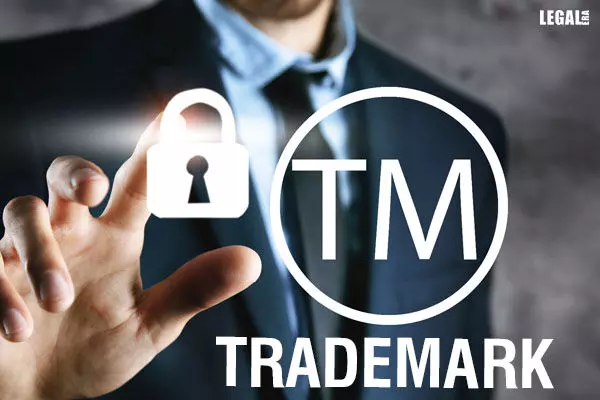- Home
- News
- Articles+
- Aerospace
- Artificial Intelligence
- Agriculture
- Alternate Dispute Resolution
- Arbitration & Mediation
- Banking and Finance
- Bankruptcy
- Book Review
- Bribery & Corruption
- Commercial Litigation
- Competition Law
- Conference Reports
- Consumer Products
- Contract
- Corporate Governance
- Corporate Law
- Covid-19
- Cryptocurrency
- Cybersecurity
- Data Protection
- Defence
- Digital Economy
- E-commerce
- Employment Law
- Energy and Natural Resources
- Entertainment and Sports Law
- Environmental Law
- Environmental, Social, and Governance
- Foreign Direct Investment
- Food and Beverage
- Gaming
- Health Care
- IBC Diaries
- In Focus
- Inclusion & Diversity
- Insurance Law
- Intellectual Property
- International Law
- IP & Tech Era
- Know the Law
- Labour Laws
- Law & Policy and Regulation
- Litigation
- Litigation Funding
- Manufacturing
- Mergers & Acquisitions
- NFTs
- Privacy
- Private Equity
- Project Finance
- Real Estate
- Risk and Compliance
- Student Corner
- Take On Board
- Tax
- Technology Media and Telecom
- Tributes
- Viewpoint
- Zoom In
- Law Firms
- In-House
- Rankings
- E-Magazine
- Legal Era TV
- Events
- Middle East
- Africa
- News
- Articles
- Aerospace
- Artificial Intelligence
- Agriculture
- Alternate Dispute Resolution
- Arbitration & Mediation
- Banking and Finance
- Bankruptcy
- Book Review
- Bribery & Corruption
- Commercial Litigation
- Competition Law
- Conference Reports
- Consumer Products
- Contract
- Corporate Governance
- Corporate Law
- Covid-19
- Cryptocurrency
- Cybersecurity
- Data Protection
- Defence
- Digital Economy
- E-commerce
- Employment Law
- Energy and Natural Resources
- Entertainment and Sports Law
- Environmental Law
- Environmental, Social, and Governance
- Foreign Direct Investment
- Food and Beverage
- Gaming
- Health Care
- IBC Diaries
- In Focus
- Inclusion & Diversity
- Insurance Law
- Intellectual Property
- International Law
- IP & Tech Era
- Know the Law
- Labour Laws
- Law & Policy and Regulation
- Litigation
- Litigation Funding
- Manufacturing
- Mergers & Acquisitions
- NFTs
- Privacy
- Private Equity
- Project Finance
- Real Estate
- Risk and Compliance
- Student Corner
- Take On Board
- Tax
- Technology Media and Telecom
- Tributes
- Viewpoint
- Zoom In
- Law Firms
- In-House
- Rankings
- E-Magazine
- Legal Era TV
- Events
- Middle East
- Africa
Delhi High Court States Trademark Registry Can Send Documents via Email Only if Litigant Furnishes ID

Delhi High Court States Trademark Registry Can Send Documents via Email Only if Litigant Furnishes ID
Emphasizes there’s no legal compulsion and the person may have reservations about not providing such details
The Delhi High Court has held that the Trademarks Registry can serve documents to a party via email, although it may be done only if the party has provided an email ID for such a purpose.
In the Mex Switchgears Pvt. Ltd. vs Vikram Suri Trading As Armex Auto Industries case, the bench of Justice C Hari Shankar stated that an email ID provided by a trademark applicant (in an application in the notice of opposition) would suffice as an address for serving the documents under Section 143 of the Trade Marks Act, 1999. It would mean that the applicant agreed to receive communication through email.
The judge said, “I do not think there can be any manner of doubt that the service of documents relating to the application or the notice of opposition at the e-mail ID would suffice as service within the meaning of Section 143 of the Trade Marks Act.”
Section 143 states that all documents ‘may be served by leaving them at or sending them by post’ to the address of the applicant.
The judge clarified that the words ‘leaving them at’ in Section 143 were to be read expansively to cover the service when an email ID was provided in the application or notice. He added that the applicant could not later argue that the documents sent through email were not served within the meaning of the Trade Marks Act.
The court was hearing an appeal challenging an order of the Deputy Registrar of Trade Marks on a plea opposing an application for the registration of the mark ‘Armex’.
The plea was treated as abandoned on the ground that the opponent failed to respond with supporting evidence within the stipulated time, which was calculated from the date of service of the documents sent by the Registry through email.
However, the appellant asserted having not received any such document, as it had been emailed. The appellant maintained it had not provided any email ID for such a service.
The bench held that since the appellant did not share any email ID in its notice, it meant that the Registry had not served the documents properly.
The judge said, “The reason is that it is entirely up to the applicant, or the opponent to choose the address at which he desires official communication from the Registry of Trade Marks to be addressed to him.”
Justice Shankar further emphasized there was no statutory or legal compulsion to provide an email ID for service, particularly since there may be several reasons for not providing the same.
Thus, while allowing the appeal and setting aside the Registry’s order, he held, “The email may be difficult to access or may not be regularly accessed by the party concerned. If the rules were to require any email ID to be provided by the party, then, no doubt, the party would be mandatorily required to do so.”
Advocates Zeba Tarannum Khan and Sheril Bhatia appeared for the appellant.
Central Government Standing Counsel Harish Vaidyanathan with advocates Srish Kumar Mishra, Alexander Mathai Paikaday, M Sriram, and Krishnan V represented the official respondent.



